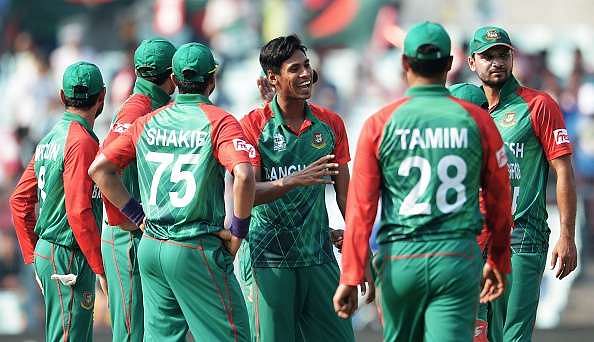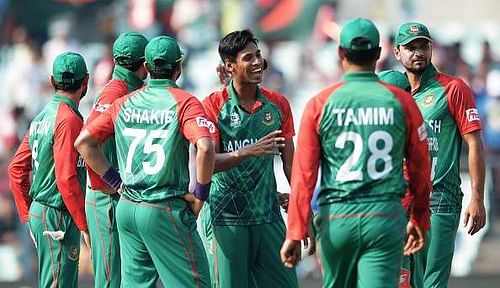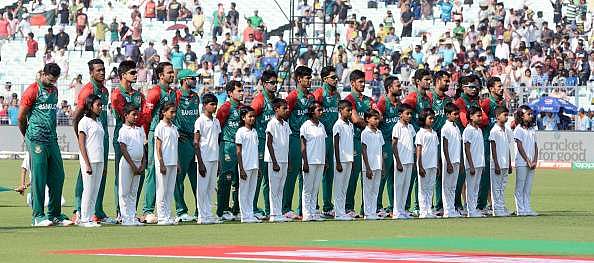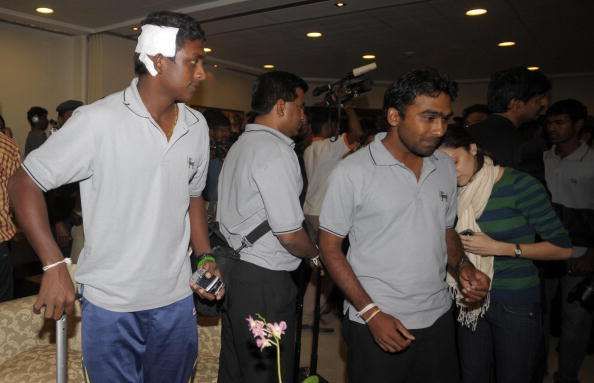
What are the implications on cricket in Bangladesh after the attacks in Dhaka?

Acts of violence don’t just take lives and turn people dead, they take the conscience out of the living too. For every human killed by the acts of barbarianism, a thousand more live in the fear that it could have been them, or worse, it could still be them. The social and political status of the place is thrown into an abyss and the unruly class finds its way into the mainstream, feeding off people’s fears. In such a scenario, every aspect of a civilization that unites people faces a toll, including but not limited to festivals, social gatherings, and sports.
It is in this context that we should view the recent terror attacks in Dhaka that left 21 people dead – several foreigners amongst them – and several survivors with a lifetime of memories they’d hate to hold on to. Five gunmen entered the premises of Holey Artisan Bakery, an eatery in Gulshan, an affluent area of Bangladesh’s capital at around 8:45 pm on July 1, and fired incessantly at the guests seated there. Nine hours from the inception of the attack, at around 5 am next morning when the paramilitary forces finally stormed the bakery premises to launch a counter-attack – after the Dhaka Metropolitan Police had failed to secure the place – the gunmen blew the place up, with the explosives tied to a chair that seated one of the chefs, Miraj.
That this attack – which has been perceived as one of the deadliest in Bangladesh’s history – coincided with the nation’s cricket team’s rise through the international ladders is an unfortunate thing. Only recently had Bangladesh started to make a strong statement for themselves, especially after the quarter-final finish in the ICC Cricket World Cup 2015, as they had defeated Pakistan, India, and South Africa at home in bilateral One-Day International series. However, the dwindling state of affairs, as far as security conditions of the nation are concerned, have left several question marks over the future of cricket in the country.
Bangladesh’s immediate cricket future in a state of abyss
Speaking of the future of cricket, the country that immediately springs to mind and that has borne the brunt of a similar barbaric attack, back in 2009, is Pakistan. Ever since the terrorist attack on a team bus carrying the Sri Lankan cricket team to Lahore’s Gaddafi Stadium during Sri Lanka’s tour to Pakistan was shelled at, cricket has come to a standstill in the Asian nation. It wouldn’t be surprising if similar conditions are seen in Bangladesh as well in the near future. In fact, Ehsan Mani, the former ICC President, and an able cricket administrator, who has felt the pain that his homeland, Pakistan, has gone through since 2009 is already of the same opinion.

“After what happened in Dhaka I fear that like Pakistan the Bangladesh board will also find it difficult to convince teams to tour their country. I am concerned that Bangladesh cricket might also be hit hard by terrorism like Pakistan cricket has suffered in the last few years,” Mani said, while speaking to NDTV Sports. His words have already started gaining strength as the England and Wales Cricket Board (ECB) have decided to monitor closely the environment in Bangladesh before taking a final call on their team's tour of 2 Tests and 3 ODIs scheduled to be held between October 7 and November 1.
The English limited-overs captain, Eoin Morgan was indeed perturbed when he said, "I think it is quite a big concern at the moment. We've always left the big decisions to the ECB. They write reports, send guys out to see if it's safe then come back to the players to see if they're happy or unhappy. But certainly, it's a concern at the moment.”
Mani complimented Morgan’s words when he added, “At a time when foreigners were killed in the attack, it will be difficult for Bangladesh to convince England to play the series. Don't forget West Indies under-19 team returned home from Bangladesh due to security concerns some years back while Australia also pulled out of the ICC Youth World Cup this year.”
The aforementioned words do ring a bell in one’s mind, especially considering the fact that Australia had pulled out of their tour to the subcontinental nation back in September citing concerns over the security of their players. The Under-19 team from down under was also refrained from participating in the Under-19 Cricket World Cup held in Bangladesh in January this year. At a time when despite their elevated status in international cricket of late teams refuse to play much cricket against them, this unfortunate incident has added another cause of grievous concern.

Probable consequences and steps to be taken
However, submitting to the nuisance and terror would be as blasphemous as supporting it. Hence, Bangladesh must stand together in solidarity against such heinous crimes and the rest of the cricketing world must rally behind them. They can take faith from their neighbours, India, who have been, time and again, been victims of such attacks, but every single time,have bounced back more powerful than ever before. For instance, less than a month after the Mumbai terror attacks in November 2008, England, who had abandoned their ongoing ODI series and went home in the wake of the attacks, returned in December to play a two-Test series.
Having said that, the Bangladesh Cricket Board must leave no stones unturned in order to convince England to come and play cricket in their country lest to create another Pakistan-like situation in yet another subcontinental nation. Not only will such a disaster be catastrophic for international cricket in Bangladesh, it will also rob the country’s cricketing fraternity off the funds that are needed for the constant upbringing of young cricketers in the domestic circuit. With cricket already struggling with its expansion world over, with associate and affiliate nations striving hard to attain full membership of the ICC, the reduction of international fixtures, at least for a brief period of time, would further delude the prospects of an all-encompassing continuous cricketing calendar.
Pakistan are already struggling with finances, and have asked the ICC for help as the cost of organising the games in the UAE has already burnt a huge hole in their pockets putting their cricketing future in a state of turmoil. Clearly, for the best interests of cricket, Bangladesh, or any other cricketer for that matter, should not let this happen. Sports are a celebration of efforts that help people bind together through mutual respect and admiration of talents. Curbing such an important aspect of a civilisation would be detrimental to the society’s health and future.